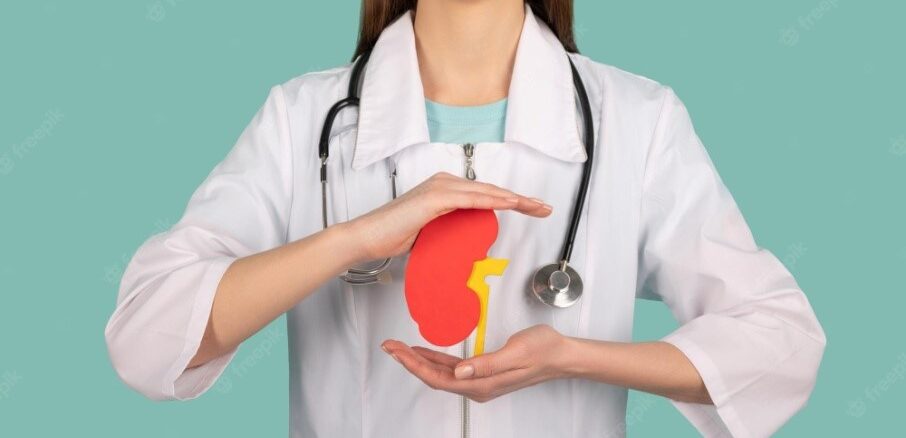- December 6, 2022
- GBH Staff Members
- Comment: 0
- Health Tips
The kidneys are a pair of bean-shaped organs located in the back, just below the rib cage on either side of the spine, that have their own internal set of structures. Each kidney contains up to one million functional units called nephrons. It is made up of a glomerulus, which is a filtering unit of tiny blood capillaries connected by a tubule. It is a part of each renal system and the most important component of the kidney. It receives blood from the heart through the arteries, digests nutrients, and helps eliminate waste products from the filtered blood.
Functions of kidney
The kidneys perform many important functions, including:
- The kidneys’ primary function is to maintain equilibrium. They regulate fluid levels, electrolyte balance, and other elements that maintain the body’s interior environment stable and comfortable.
- Keeping the pH stable: – The kidneys and lungs aid in maintaining the body’s pH balance. The lungs accomplish this by regulating the amount of carbon dioxide in circulation.
- Nutritional absorption: – The kidneys use tubules to reabsorb nutrients from the blood and transport them to where they will be most beneficial to health. They also reabsorb other substances to maintain balance. In which glucose, amino acids, bicarbonate, water, phosphate chloride, sodium, magnesium and potassium ions are all present.
- Maintaining total fluid balance and controlling blood pressure and the amount of water, salts and minerals in the body.
- Filters waste products and harmful substances from the blood and remove them from the body, and millions of microscopic blood filters are used to clean the blood.
- It regulates other body functions such as the production of hormones that aid in the production of red blood cells, bone health, and regulation of blood pressure.
- Helps in the regulation of levels of specific nutrients like calcium and potassium in the body.
- Every 24 hours, the kidneys perform their life-sustaining task of filtering and returning approximately 200 quarts of fluid to the bloodstream. About two quarts are excreted as urine, while the remainder, about 198 quarts, is retained in the body. The urine we pass stays in the bladder for one to eight hours.
Take Care of the kidney
The methods described below can help with the overall health of your body, including your kidneys:
- Choose heart-healthy foods such as fresh fruits, fresh vegetables, whole grains and low-fat or fat-free dairy products and eat nutritious foods and limit your intake of salt and added sweets. Each day, limit your sodium intake to less than 2,300 milligrams. Try to keep added sugars to less than 10% of your daily calories. Choose foods that are good for your health.
- You can protect it by avoiding or controlling diseases that damage the kidneys, such as diabetes and high blood pressure. If you have a urinary tract infection (UTI), see a doctor immediately and get tested as it can lead to kidney damage if left untreated. Your doctor will advise you how often you should be tested.
- Strive for a healthy weight. If you are overweight or obese, the NIH Body Weight Planner is an online tool that will help you structure your calorie and physical activity routines to achieve and maintain a healthy weight. On most days, be active for 30 minutes or more.
- Get enough rest. Every night, aim for 7 to 8 hours of sleep. Try improving your sleep patterns.
- Stop smoking or using other tobacco products. If you consume alcohol in excess, it can increase your blood pressure and add extra calories, which can lead to weight gain. Limit alcohol consumption to no more than two drinks per day if you are a woman and no more than two drinks per day if you are a man.
- Investigate stress-relieving activities. Learning to manage, relax, and deal with challenges can enhance both mental and physical health.
Conclusion
At last, we can say that kidney is a highly essential organ in the human body. It will help to control your blood pressure and blood sugar levels and reduce your risk of heart disease, knowing its significance, we need to take care of our kidneys by maintaining a balanced diet and by exercising frequently and in case of any kidney issues go for immediate doctor consultation.


